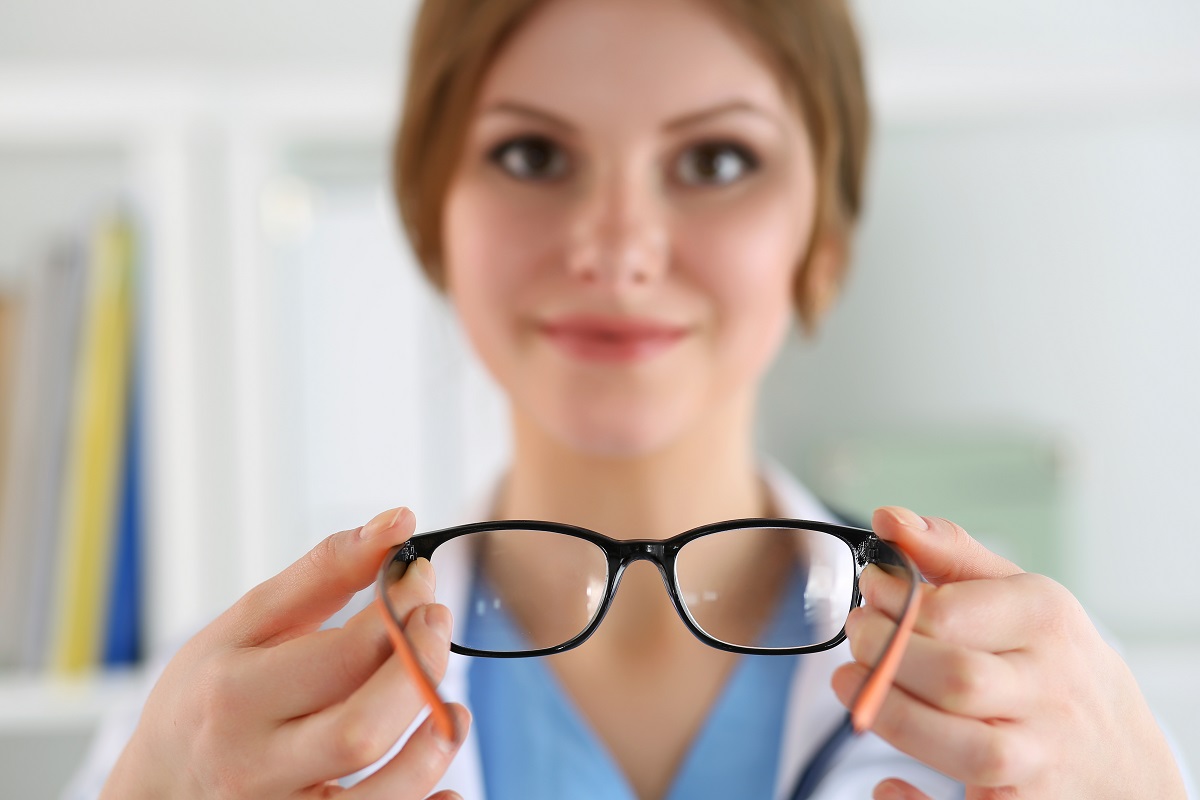- Proper hygiene and cleanliness are essential to maintaining healthy eyes, like washing hands and removing eye makeup before bed.
- Use the 20-20-20 rule when working on a computer to prevent digital screen fatigue, plus ensure proper lighting and ergonomics.
- Protect eyes from harmful UV rays and blue light exposure by wearing sunglasses and using blue light filters on devices.
- Eating a balanced diet with essential nutrients, exercising regularly, and managing stress is vital for eye health.
- For glasses, visit an optician for the perfect fit, ensure the correct prescription, clean regularly, and protect from damage.
The eyes are one of the most delicate parts of the body. They are sensitive and require proper care. In today’s modern world of digital devices, it is vital to take care of your eyes to maintain your vision and prevent eye strain.
The eyes are the windows to the world. One can see and experience the beauty of nature and the world’s wonders through eyes. However, with the increase in digital devices and prolonged screen time, our eyes face an increased risk of strain and fatigue.
Proper eye care is crucial in maintaining clear vision and preventing visual discomfort. Routine eye exams are essential to detect vision problems and avoid long-term eye diseases.
This blog will explore the art of eye care and learn proper eye care techniques to keep your eyes healthy and your glasses working correctly.
Essential Eye Care Practices
Proper eye care practices can help maintain healthy eyes and improve your vision. Here are some essential practices:
Proper Hygiene and Cleanliness for Eye Health
Washing your hands before touching the eyes or contact lenses is crucial. Dirty hands may harbor bacteria that can cause eye infections. It is also advisable to avoid touching or rubbing your eyes to prevent the spreading of diseases.
Ensure to use reputable eye makeup products and apply them safely. Eye makeup should be removed before bed, as leaving it on can cause eye irritation or infections.
Moreover, make sure that your contact lenses are cleaned and replaced regularly, according to the manufacturer’s recommendation.
Preventing Eye Strain and Fatigue
Digital screens can cause a lot of strain on the eyes, leading to fatigue. One should take frequent breaks when working on a computer. Using the 20-20-20 rule is an excellent way to prevent digital screen fatigue. It involves taking a 20-second break every 20 minutes and looking at something 20 feet away from the screen.
Proper lighting and ergonomics are essential factors in preventing eye strain. The workplace should be sufficiently lit, and the computer screen should be positioned at eye level to reduce strain on the eyes.
Protecting Eyes From Harmful UV Rays and Blue Light Exposure
Sunglasses that block out 99-100% of UV A and UV B radiation can help to protect eyes from harmful rays. When selecting sunglasses, consider those that can block UVA and UVB rays.
Spending too much time in front of the computer or phone can lead to blue light exposure. Blue light is known to suppress melatonin production, which can lead to poor sleep quality. Consider using blue light filters on your devices, especially in the evening.
Maintaining Healthy Eyes With a Balanced Lifestyle
A balanced lifestyle is vital for maintaining healthy eyes. It involves managing stress levels, getting adequate rest, and abstaining from smoking and excessive drinking.
Additionally, reducing the time spent on electronic screens, protecting your eyes from bright sunlight, and wearing safety glasses when engaging in physical activities can all help prevent vision problems.
Importance of Nutrition for Eye Health
Eating a balanced diet with the proper nutrients is essential for maintaining eye health. Vitamins such as A, C, and E, zinc, and omega-3 fatty acids can slow down age-related eye loss and macular degeneration. Leafy green vegetables, nuts, fatty fish, and citrus fruits are all essential sources of these nutrients.
Regular Exercise and Its Impact on Eye Health

Regular exercise has a positive impact on eye health. It can reduce the risk of eye conditions such as glaucoma, diabetes, hypertension, and heart disease, all of which can be detrimental to the eyes. Physical activity can aid blood circulation, which helps bring oxygen and nutrients to the eyes and improves eye health overall.
Managing Stress and Its Effect on Vision
Stress and anxiety are harmful to eye health and interfere with our vision. Stress increases cortisol levels in the body, leading to inflammation, which can contribute to vision problems and other eye conditions.
Stress-reducing activities such as yoga, meditation, and deep breathing exercises can help manage stress levels and promote eye health.
Maximizing the Benefits of Glasses
Choosing suitable eyeglasses is essential for clear vision, eye health, comfort, and personal style. It ensures optimal visual clarity while preventing eye strain and discomfort, allowing you to express your style and boost your confidence. These are some things you can do to maximize the benefits of glasses.
Visiting Opticians for Perfect Glasses
Visiting opticians is crucial to acquire glasses and the perfect eye fit. An optician will assess your vision needs, consider your lifestyle, and recommend suitable glasses to correct your vision. They will also take the necessary measurements and adjust the frames to ensure optimal comfort.
Ensuring the Correct Prescription and Fit

Ensuring that a suitable prescription is provided for your glasses is vital to maximizing their benefits. Prescriptive errors can result in eye strain, headaches, and blurry vision.
In addition, the design and fit of glasses can significantly impact their functionality. A proper fit ensures the lenses are positioned correctly on your face and the frames are comfortable, secure, and secure.
Proper Cleaning and Maintenance of Glasses
Glasses must be cleaned regularly to prevent smudges, scratches, or lens damage. Clean glasses with warm water and mild soap, dry them with a clean, soft cloth, and store them appropriately when not in use to prevent accidental breakage. Avoid using paper towels or regular cleaning products, as they can cause lens damage.
Protecting Glasses From Damage and Loss
Protecting glasses from damage and accidentally losing them is crucial to getting the most out of their benefits. Never place glasses face down on hard surfaces, always keep them in their protective case when not in use, avoid exposing them to extreme temperatures, and keep them away from children or pets.
In conclusion, properly caring for your eyes and maintaining healthy vision is essential. Proper eye care practices, such as hygiene, digital fatigue prevention, UV rays, blue light exposure, nutrition for eye health, regular exercise to reduce stress levels, and maximizing the benefits of glasses are paramount in ensuring optimal visual clarity and overall eye health.
By making these simple changes to your lifestyle, you can help protect your eyesight now and into the future. Furthermore, visiting an optician for a prescription check-up every two years will ensure that any minor issues with vision or comfort with eyeglasses can be addressed quickly before they become more serious problems.
